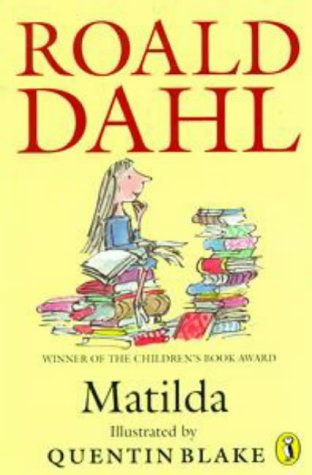 |
| Source: http://wordsonpaperya.blogspot.sg/ |
Many young readers will be delighted and thoroughly entertained by how reading gives Matilda superpowers. Roald Dahl used this story to depict reading as a highly desirable activity that is magical and empowering. Being a strong protagonist throughout the story, many children will look up to Matilda and thus be encouraged to read widely. Some titles of the books she reads are even mentioned.
This story has a very clear theme of good vs evil. Not only is the theme clear, the distinction between the good characters and the evil characters is very obvious. Some parents have expressed their concern that in Roald Dahl's books, children are always portrayed as good characters and adults always depicted to be bad. This is indeed a distinctive trait of many of Roald Dahl's books and Matilda is no different. The heroine of the story, Matilda, is a young girl and the antagonists, her parents and Miss Trunchbull, are adults. However, this book has a slight exception. Miss Honey is an adult but good and is also mistreated by the "evil" characters. Mrs Phelps, the librarian, also treats Matilda well.
This book also attempts to convey a subtle message to parents that children should be allowed to explore and discover their own hobbies. For instance, Matilda's parents should not keep insisting that she should watch television just because it is something they like to do. This can help offer a slight glimmer of hope to children who have parents who are not supportive of their hobbies or interests of choice. Maybe like Matilda, they will meet their Miss Honey one day.
Reading this book again as an adult, I found it very unrealistic and idealistic. However, children do need a bit of magic in their stories and this story has been enjoyed by many over the years. It even has movie and musical adaptations which have also been very well received.
No comments:
Post a Comment